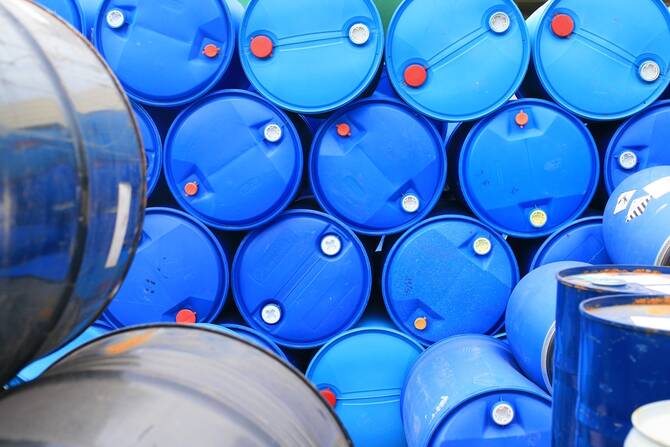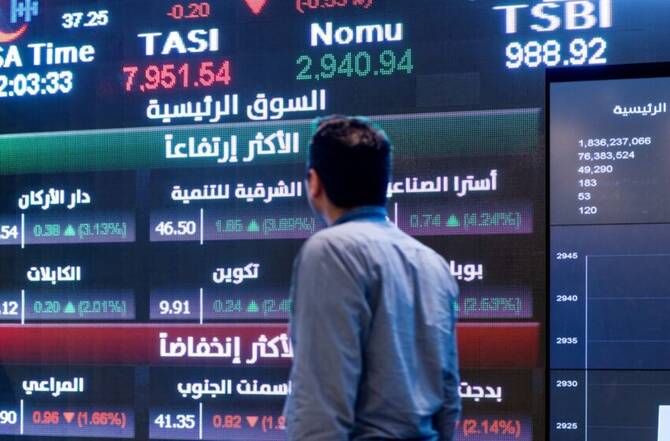RIYADH: Startups across the Middle East and North Africa continued to attract significant investment in the past week, with Saudi Arabia emerging as the driving force behind many of the region’s most prominent funding rounds and initiatives.
Backed by government-led strategies and private capital, the Kingdom is reinforcing its position as a regional hub for innovation and artificial intelligence-driven technologies.
Saudi Arabia-based Wyld VC has launched a $50 million early-stage venture capital fund focused exclusively on AI, becoming the first AI-native VC firm in the MENA region.
The fund is founded and led by Tala Hasan Al-Jabri and is designed to support AI founders building middleware and application-layer innovations, targeting sectors with the highest potential for industrial transformation.
“The GCC is leading the charge in catalyzing an AI revolution— through massive infrastructure investments, advanced research and model deployment, and transparent, innovation-forward regulation,” said Al-Jabri, adding: “However, the region’s greatest gap is AI talent. Wyld VC is here to fill that gap.”
Wyld VC is backed by the family office of Lawrence E. Golub, marking its first investment in the Middle East.
“Tala is a highly accomplished, talented investor, with a track record of success investing in innovative, early-stage technology companies,” said Golub.
“Her considerable investment acumen, combined with her unparalleled and comprehensive ties and network in the Gulf and the US, offer a unique investment opportunity. I am excited to be supporting Tala and Wyld on this compelling new venture,” Golub added.
WakeCap raises $28m to expand contech platform

Hassan Al-Balawi, co-founder of WakeCap. Supplied
WakeCap, a Saudi construction technology company, secured $28 million in funding during the Saudi-US Investment Forum.
The company will use the capital to enhance its construction site safety solutions, expand its presence in Saudi Arabia, and pursue international markets.
Founded in 2017 by Hassan Al-Balawi and Ishita Sood, WakeCap provides wearable technology that enables contractors and project managers to monitor site operations in real-time.
Its platform offers digital insights to improve safety, efficiency, and decision-making on large-scale construction projects.
“WakeCap’s ability to capture and act on real-time jobsite data is critical for high-performing project controls,” said Al-Balawi.
“This round fuels our next stage of growth as we expand our global footprint, increasing the value we deliver to customers through richer insights, faster reporting, and greater operational efficiency,” he added.
Kilow secures $2.5m to scale AI-powered weight management

Fahed Al-Essa, founder of Kilow. Supplied
Saudi health tech startup Kilow has raised $2.5 million in seed funding to develop its personalized, AI-powered weight management platform.
The round was led by Sanabil Venture Studio, in partnership with innovation services firm Stryber.
Founded in 2024 by Fahed Al-Essa, Kilow provides users with personalized treatment plans, medical consultations, and real-time health tracking.
The platform also integrates with smart health devices and offers at-home lab testing, enabling a comprehensive digital health experience.
The funds will be used to expand Kilow’s product capabilities and reach more users across Saudi Arabia as it aims to tackle the growing health and wellness market with AI-driven solutions.
Saudi Arabia launches Humain to spearhead AI development
Saudi Arabia has launched Humain, a state-backed AI company established under the Public Investment Fund.
Chaired by Crown Prince Mohammed bin Salman, Humain will serve as the central national entity responsible for AI development and investments, aligning with the Kingdom’s Vision 2030 agenda.
With a focus on infrastructure and model development, the company will offer next-generation data centers, advanced AI infrastructure, and cloud computing capabilities.
A key initiative will be the development of a multimodal Arabic large language model tailored to regional needs.
The launch was strategically timed to coincide with the visit of US President Donald Trump to Riyadh, reflecting the broader geopolitical importance of AI collaboration between Saudi Arabia and the US.
Google backs STV’s new AI fund for MENA startups
Saudi-based venture capital firm STV has launched a new AI-focused fund with backing from Google, aimed at supporting early-stage startups in the MENA region.
The fund will invest in companies developing application-layer AI products, localized large language models, and supporting infrastructure.
The initiative seeks to address the region’s underrepresentation in AI funding. In 2024, only 1.5 percent of total VC investment in MENA was directed toward AI startups, compared to 38 percent in the US and 13 percent in India.
The partnership brings together STV’s regional market insight with Google’s AI research and product expertise to support the development of locally relevant and globally competitive technologies.
Nawy raises $75m to scale proptech and mortgage offering

The Nawy team. Supplied
Egyptian property tech company Nawy has raised a total of $75 million in its latest funding rounds, comprising a $52 million series A equity round and $23 million in debt financing.
The equity round was led by Partech, with participation from e& Capital, March Capital, and VKAV, as well as DPI via Nclude, VentureSouq, and Shorooq.
Debt funding was provided by leading Egyptian banks to support the expansion of Nawy Now, the company’s mortgage platform.
Founded in 2019 by Mohamed Abou Ghanima, Abdel-Azim Osman, Ahmed Rafea, Aly Rafea, and Mostafa El-Beltagy, Nawy offers a full-stack real estate ecosystem including financing, fractional ownership, asset management, and business to business brokerage enablement.
Nawy claims to have achieved $1.4 billion in gross merchandise value in 2024 and reports a 50 time increase in US dollar-denominated revenue.
The company previously raised $5 million in seed funding in 2022 from the Sawiris family office.
AqlanX raises $10m for Arabic-first enterprise AI
UAE-based AI company AqlanX has raised $10 million in funding from Lakeba Group through its subsidiary DoxAI.
The investment was made under the UAE’s NextGen FDI initiative, which aims to attract high-tech foreign investment to the country.
Founded in 2025 by Demetrio Russo, AqlanX builds enterprise-grade AI solutions for automating business processes, improving operational efficiency, and transforming document management.
The company focuses on building Arabic-first AI technologies to serve local enterprises.
The funding will be used to localize and scale DoxAI’s automation products across the Middle East, as the company expands its footprint within the region’s growing AI ecosystem.
TensorWave raises $100m to expand AMD-based AI clusters
AI infrastructure startup TensorWave has raised $100 million in a funding round led by Magnetar and AMD Ventures, bringing its total raised to $146.7 million.
Other participants include Maverick Silicon, Nexus Venture Partners, and Prosperity7 Ventures, the investment arm of Saudi Aramco.
Founded in 2023 by Darrick Horton, Jeff Tatarchuk, and Piotr Tomasik, TensorWave offers AMD GPU-based cloud services optimized for AI training.
The company has already launched a large-scale training cluster featuring 8,192 AMD Instinct MI325X GPUs.
The new capital will be used to scale TensorWave’s GPU infrastructure, grow its workforce to over 100 employees, and accelerate revenue growth.
The company projects it will exceed $100 million in run-rate revenue by the end of 2025.
Arkestro secures $36m to enhance AI procurement technology
Arkestro, a predictive procurement platform, has closed a $36 million strategic funding round led by Altira Group and Aramco Ventures, with participation from NEA, KDT, and Activant.
The platform uses AI, behavioral science, and game theory to drive cost savings and improve procurement efficiency.
The company claims its platform generates an average of 18.8 percent in savings per $1 million of enterprise spend.
The funding will support the company’s global expansion and the continued development of its AI capabilities to reduce supply chain risk and enhance collaboration between procurement teams and suppliers.



























